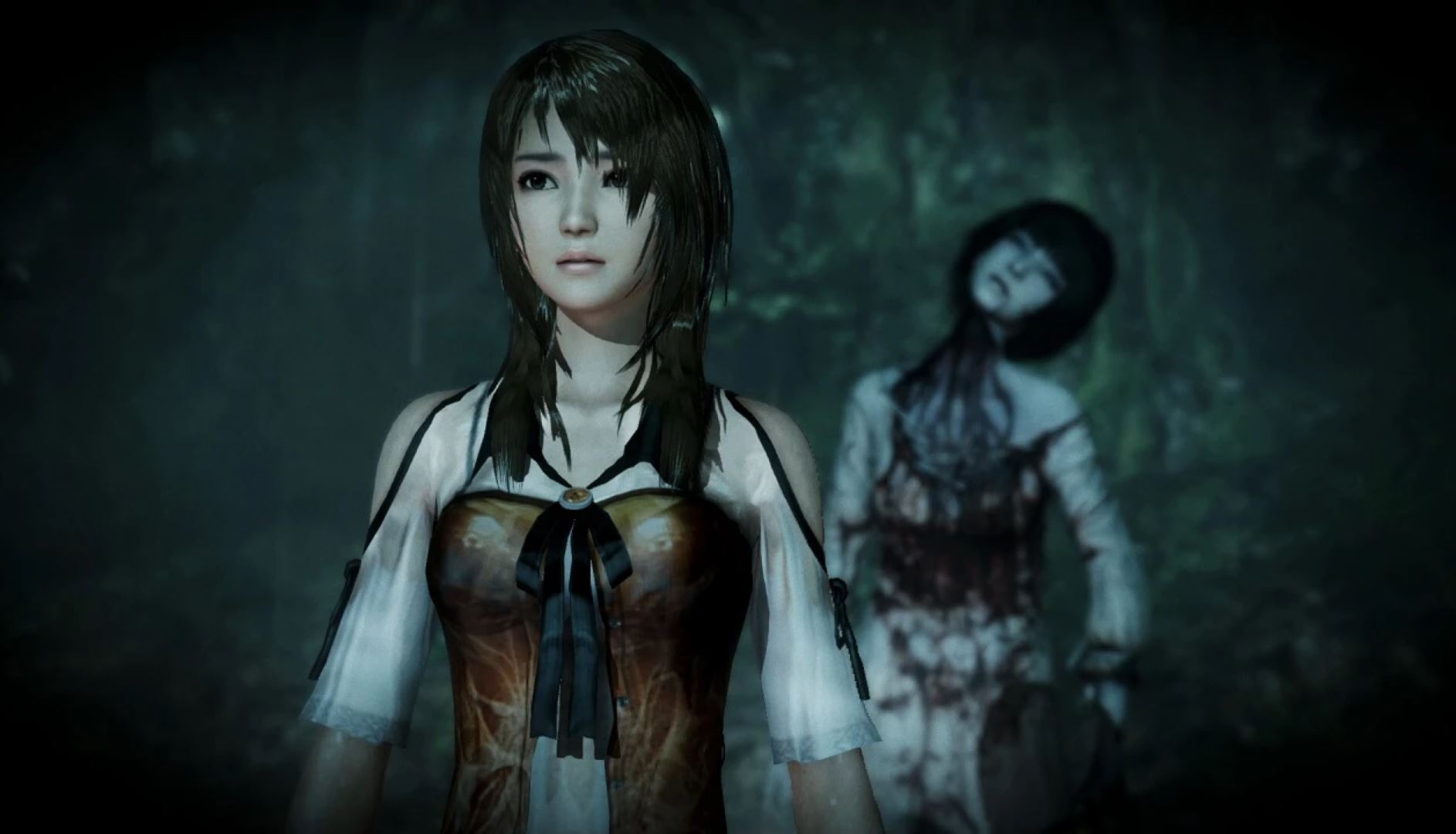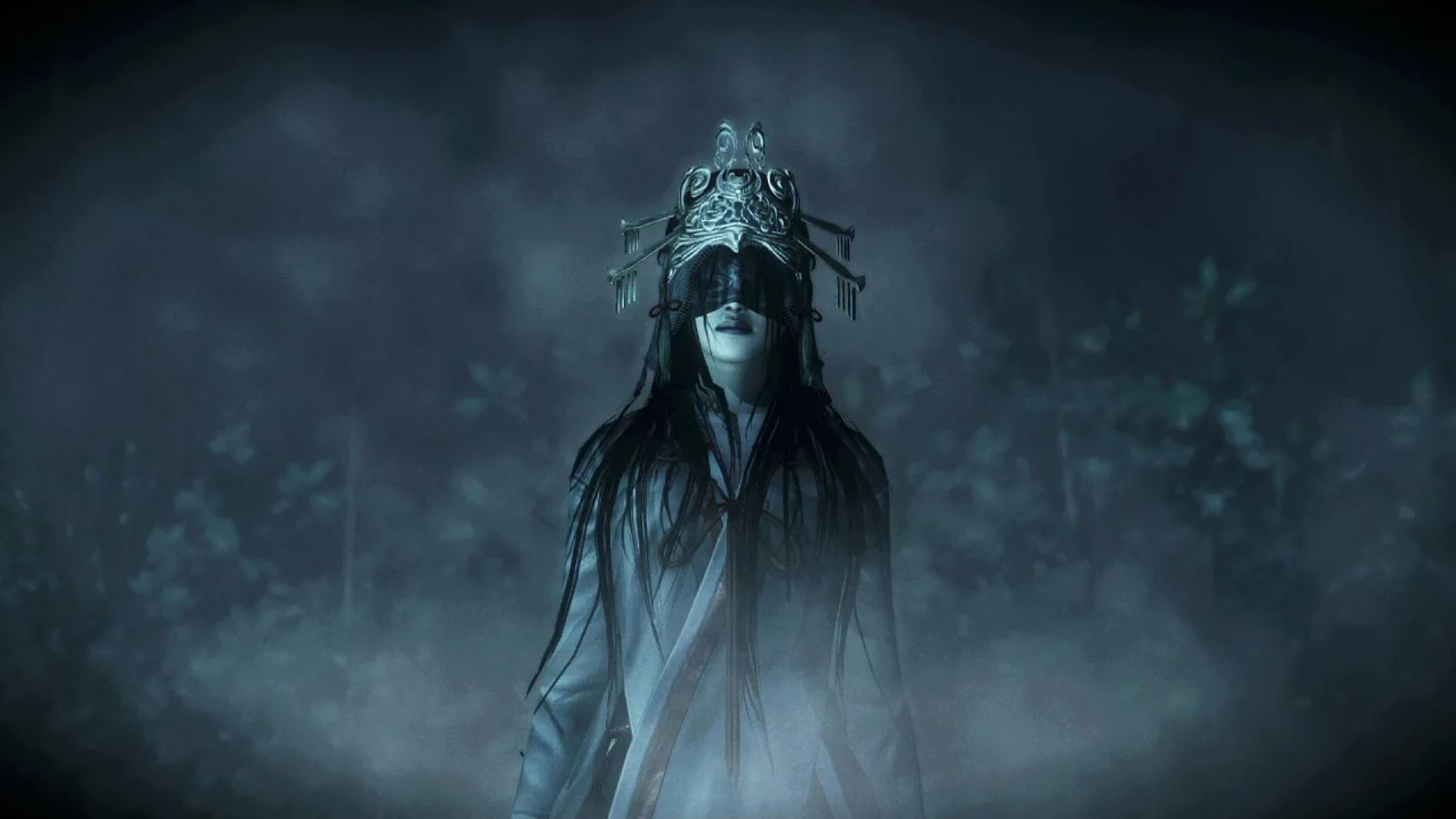Fatal Frame director talks about all the ghosts he's seen: 'spirits have been a frightening presence in my life since I was young'
Did that disc just move?!?

Fatal Frame series creator Makoto Shibata has been working on the spooky horror games since 2001 and, to coincide with the re-release of Fatal Frame: Mask of the Lunar Eclipse has written an extraordinary blogpost on Xbox Wire. It's all about how the ghosts and spirits in the games, and specific examples from this one, are "actually inspired by spirits that I've seen (and even touched!) in real life."
Oh we're barely getting started. "Zombies and monsters aren't scary because they're not real," explains Shibata, "but spirits have been a frightening presence in my life since I was young." Obviously believe what you want to believe and all that, but I do find it amusing Shibata dismisses certain kind of horror creatures as not real before talking about spirits like we bump into them on the regular.
Shibata talks about how, within the Japanese games industry, developers will often perform a purification ceremony when beginning work on a horror title. Well, developers who are scaredy-cats do. Shibata thought it "better to let the spirits emerge, so we usually don’t do the purification ceremony for games in this series." He credits this decision with various phenomena the team has come across while developing the series, "like the time we were recording sound and a mysterious voice was actually recorded in the background. We tried to remove it from the recording, but eventually gave up because no matter what we did, the voice kept coming back onto the recording, so we actually left it in the game!"
You can almost feel the excitement. By the end of this blogpost I loved Shibata, and you will too. Writing specifically about Fatal Frame: Mask of the Lunar Eclipse, Shibata talks about how the game's concept was inspired by an experience that "still gives me goosebumps."
"At first, I thought it was an illusion since I was still in a sleep-like haze, but the cold hand kept hold, slowly increasing strength. 'It hurts! It hurts!', I screamed."
Makoto Shibata
"In the game, one of the places you'll visit is Rogetsu Hall," writes Shibata. "This is actually based on an old, Japanese-style hot spring hotel owned by one of my relatives. We used to gather there as a family, and on this one particular night, my family were the only guests in the hotel, so there was nobody else around. I woke up in the middle of the night, and because the inside of the hotel was only dimly lit by the moonlight shining through the window, the fantasy-like atmosphere lured me to wander around a bit. That is, until I saw a man I didn’t recognize standing on the other side of the hallway, looking out the window under the moonlight.
"There should've only been relatives around, but this man was definitely a stranger. As I slowly approached to see who he was, the man looked at me, then quickly disappeared. More curious than scared, I went to the spot where the man was standing. I looked out the window and gazed at the large moon. I stood there looking at the moon for a while until I realized that I was now in the exact same pose as the man I had just seen. I started to wonder, was the man a spirit? Was he a vision of someone’s past? Or did I just see a vision of my future? I knew I wanted to capture a moment like this in the game."
Shibata goes on to speculate on the effects of humidity on spirits, before shifting gears to talk about one of this game's best elements. Mask of the Lunar Eclipse features a system whereby rather than just pressing a button players have to hold a button to slowly open, for example, a cupboard door: And during the drawn-out animation, sometimes spooky stuff happens.
The biggest gaming news, reviews and hardware deals
Keep up to date with the most important stories and the best deals, as picked by the PC Gamer team.
"This was actually based on a spiritual experience I had during the production of a previous game, Fatal Frame III: The Tormented," said Shibata. "Late one night, I was home asleep when I felt someone grab my hand. At first, I thought it was an illusion since I was still in a sleep-like haze, but the cold hand kept hold, slowly increasing strength. 'It hurts! It hurts!', I screamed, and I finally felt the cold hand pull away before I saw it disappear into a wall. Since I was sleeping against the wall, there was no way anyone could’ve been there. There was a spirit behind the wall!"
This guy is either a genius or needs his meds. Shibata says it's not the first time he's encountered spirits in this wall, he's heard them in the middle of the night, and when working on The Tormented. "I heard a woman’s voice say: 'Let's go swimming.' It shocked me, because that was going to be the ending scene of the game. How did she know!?"

Or perhaps it's just the long hours that sometimes get to Shibata. He claims that, when working late at Koei Tecmo's offices, "the spirit of a child would run around at night." Apparently a boy, "he would play tricks throughout the night, knocking over books and papers on my desk if I didn’t pay attention to him. When I would say, 'Urusai!', which means, 'you're being noisy', the boy would quickly disappear."
Mask of the Lunar Eclipse wasn’t made at Koei Tecmo’s studio, however, but at Grasshopper Manufacture. No problem for our spirit-finding hero. "They had this ping pong table that I used to sleep on when we were working on the game late into the evening," said Shibata, "and every once in a while, I would see the spirit of a girl who would circle around the table, running slowly and quietly. If I didn’t respond when seeing her, she would walk over to the window and sing a song. 'Four, four, six…'
"Apparently, she was singing numbers in the form of verses. I could never hear the end clearly, but I thought this was a message that they wanted me to include in the game, so I decided to include an event where a girl says numbers as if she was singing them."
I guess now we know why the Fatal Frame games can be so freaky, and Matsuda has one last anecdote to share, and it's a favourite.
"The spirit named Kageri Sendo in Fatal Frame: Mask of the Lunar Eclipse is based on 'Miyamoto-san,' a figure who sometimes appeared in my dreams. Miyamoto-san is a slender man who walks around with a person who looks just like him, only in a wheelchair. He is always polite, and bows back at me when I bow, but the person in the wheelchair is what strikes me, as he’s obviously dead and crawling with insects!
"Sometimes Miyamoto-san is not present and only the wheelchair and the person sitting in it are left unattended. When I try to touch them to see if they are dead, Miyamoto-san angrily runs to me and says, 'Don't touch it!' And then the supposed corpse would start to move toward me."
In Mask of the Lunar Eclipse there's a sanatorium section, where each floor has its own spirit. Naturally, Shibata decided that Miyamoto had to be in there.
"At that time, instead of recreating Miyamoto-san as he was in my dreams, we changed his character to a woman inspired by gothic horror to make her a spirit that users would want to photograph. Some of the staff members suggested that the character’s name should stay as Miyamoto, however, I did not know his first name, and he seemed too weak to be a boss spirit, so we went back to the studio and came up with a name that would be more appropriate for an enemy of the Fatal Frame series, Kageri Sendo.
"It's funny, though, as Miyamoto-san has not appeared in my dreams since he appeared in the game. Having gained form, maybe he was satisfied to some extent?"
Amazing: Not only does Shibata see spirits but, apparently, exorcises them as well. Or perhaps he's just given them a global reach and presence they would never have otherwise? I don't take this stuff all that seriously, which is clearly why I'm not the creator and director of a fantastic horror series, but it does make me wonder about that old Fatal Frame box sitting somewhere among my old games. The next time something goes bump in the night I'll think of Shibata, and the little spirits he's put on that disc, and won't know whether to laugh or cry.

Rich is a games journalist with 15 years' experience, beginning his career on Edge magazine before working for a wide range of outlets, including Ars Technica, Eurogamer, GamesRadar+, Gamespot, the Guardian, IGN, the New Statesman, Polygon, and Vice. He was the editor of Kotaku UK, the UK arm of Kotaku, for three years before joining PC Gamer. He is the author of a Brief History of Video Games, a full history of the medium, which the Midwest Book Review described as "[a] must-read for serious minded game historians and curious video game connoisseurs alike."

